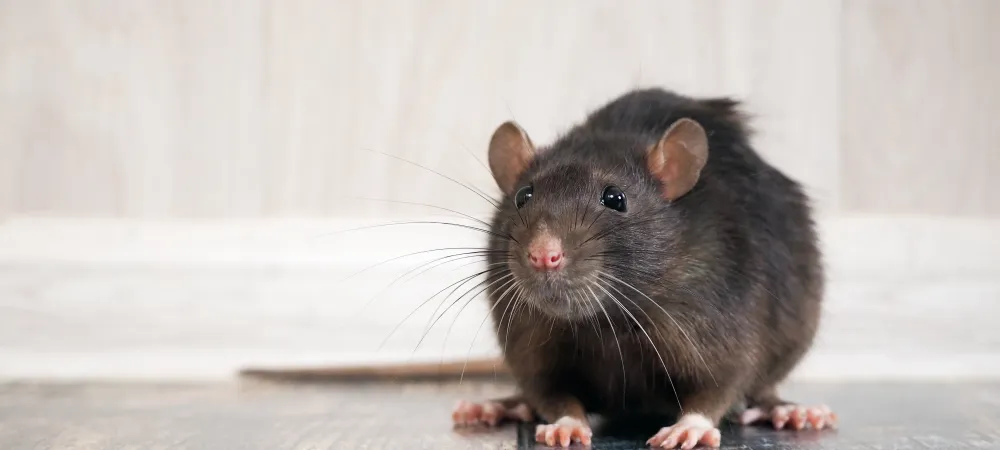What Attracts Rats to Your House?

Rat and mice infestations can be a lot of trouble if they get out of hand, with property being damaged and potential exposure to dangerous diseases. We’re here to get you protected and help make sure that it doesn’t get to that point in your own home. As with many things, rat prevention is your best form of protection from these pests entering your home, and below are some of the things that rats and mice are looking for when they come to make a home in your house.
Food and Water
With all living species, the decision to migrate to a certain location is heavily influenced by the ease of access to food and water. This is the number one attractor by far for all rodents and is something you should be vigilant about. Like many pests, a rat’s definition of food is basically anything that is available to them, and whilst they may prefer a vegetable and oat-based diet, preferences mean little when they’re starving.
The key here is to make sure that any and all food is made as inaccessible as possible. Keep your pantry sealed and make sure to clean up any and all food spillages, especially underneath your fridge or in the crevices of counters and cabinets. While rodents may be relatively large compared to other pests, they can still squeeze into impossibly small spaces in search of food.
With regards to water, any reliable water source such as a leaky pipe will attract rats. Make sure to keep an eye on any permanent and open water sources in your home or yard such as pet bowls or birdbaths and keep an eye out for any of the common signs of rodents around those locations.
Warmth and Shelter
With their bellies full, the next thing that mice, rats, and other rodents will be looking for is a comfy place to lay down. As with any warm-blooded animal, this becomes even more important in the winter as the temperatures fall or when they are looking to raise their young. We don’t recommend just turning off the heating and trying to freeze them out. Instead, there are some other things you can do:
- Ensure good insulation - If the heat is not escaping from your home, then outdoor creatures are less likely to be able to find the source of the heat.
- Draft excluders and good seals - Any small gap in window frames, underneath doors, and especially garage doors can provide a welcome invitation to furry intruders.
- Keep heat source access clear - Depending on your heating system, the practicality of this is difficult. The best thing to do is make sure that heating sources have clear space around them to prevent easy nesting locations.
Trash
A rat’s attraction to food doesn’t end once you feel like it is inedible, and have thrown it out. Open and unsealed trash will seem like a five star buffet to mice and rats, and will likely attract them into your home. Anything you can do to keep trash sealed away and prevent any scent diffusion will be of great help to you in keeping your home rodent-free. As opportunistic feeders, a rat's dream is reliable food, and there is nothing more reliable than a weekly delivery as you put your trash out in a cracked trash can or with ripped trash bags.
Clutter
Like most creatures, it is important for rats and mice to be able to hide as a way to feel safe in whatever place they have made their home. Once a rodent has figured they have access to food and water, the next thing needed is somewhere to hide so that the pesky housecat can’t get to them. That’s why homes with a lot of paper, cardboard, or other nesting materials laying around are perfect hiding spots. Another popular home can include separate spaces such as garages and attics which are at high risk of a rodent infestation.
Signs of a Rodent Infestation
Now that you know what attracts rats to your house, it’s important to know the signs of a rodent infestation in case you need to contact a professional rodent control company.
DIY treatments rarely work and it seems like rodents can multiply by the minute. A female rat can reproduce every three weeks and gives birth to six to ten rats at a time. That’s why it’s important to contact rodent control exterminators to stop your rat infestation in its tracks. Not completely certain if rats or mice have invaded your home? Here are some common signs of a rat infestation or mice infestation:
- Discovering rodent droppings
- Smelling urine odors
- Seeing gnaw marks or holes
- Hearing scampering noises
- Noticing odd pet behavior
- Finding rodent nests, often made out of paper and insulation
The best way to know if you have a rodent infestation is to schedule a professional rodent inspection. If you’re interested in having us inspect your home, call our office at 724-221-9636.
Rat Identification
The two most common types of rats found in homes across the United States are the roof rat and Norway rat. Rats are roughly 9 inches in length and weigh approximately two pounds. Their fur color is typically brown or gray, and their tails don’t have any hair on them. A sure sign of a rat infestation is finding large droppings the size between 12.5mm-20mm in your kitchen, under sinks, behind appliances, wall crevices, and inside cabinets. Unfortunately, properly storing food won’t deter rats if they’ve already nested in your home. Rats have remarkably strong jaws and teeth and will chew right through food storage.
If you find one rat in your home, there are likely more hidden somewhere. Rat colonies can consist of 100 rats at a time, and they breed at incredibly high rates. Once rats have made a home in your house, the only way to protect yourself is to completely remove them.
Mouse Identification
Mice are the most common of any pest infestation. They often weigh between 20 to 40 grams and can grow up to 6 or 7 inches in length. They’re typically brown or gray, and have hair on their tail, unlike rats. Mice have horrible eyesight, so they tend to stay close to walls while traveling throughout your home, so it’s easy to hear them scratching around. Despite their poor eyesight, they can jump up to 8 feet, giving them easy access to your attic area. Getting rid of mice in your walls or attic can be incredibly difficult if not done right, so it’s important to reach out to our professional rodent removal exterminators to handle the job.
Mouse and Rat Prevention Tips
Outside of holistic approaches to the state of your home in preventing rats, there are some specific products that you can use to help. While there are many stories about what can help keep rats away (and certainly not all of them will be effective) below are a few that really can help you.
Does bleach keep rats away?
Bleach is an incredibly versatile product, and it is no different when it comes to keeping away rats and mice. It’s the scent of bleach that is most potent in keeping away mice and rats rather than the cleansing effect it can have. There are a number of different ways in which you can use bleach to help you with a rodent infestation, but make sure you are careful. Bleach is a very toxic substance and can cause great harm to you and your loved ones if handled improperly. Some uses of bleach include:
- Repellant spray - Mixing bleach with water can give you an effective repellent that can be sprayed around the home to leave a scent that rats and mice hate and will do everything to avoid. Just make sure to leave at least one exit path open otherwise they will be trapped in with you.
- Toxic baiting - Bleach is toxic if ingested by mice and rats, so if you can somehow mask the smell (peanut butter is one great option) then you can attempt some homemade bait stations.
- Disinfectant - As stated, mice and rats carry many dangerous diseases, so not only can bleach help repel the rats, but it can also be used to clean any areas you suspect they may have been.
Does vinegar keep rats away?
If the idea of spraying toxic bleach all over your home doesn’t sound like something you’re comfortable with, then there are some natural alternatives. The use of vinegar targets mice and rats' intense sense of smell, so you want to use the most potent vinegar that you can find. To answer which to use, white vinegar should be your most effective tool. Again, a spray bottle can be used with a vinegar solution to target likely areas.
Another method of using vinegar involves coating numerous cotton balls in white vinegar and placing them around your home, and in particular any place you feel that a nest may be. Leaving these balls until they lose their scent and re-upping as needed, you can make your home incredibly unattractive to rats and mice. Vinegar doesn’t have the same chlorinated smell that bleach may have, so you should find it more palatable in your home.
Does sealing entry points keep rats away?
While scent barriers are certainly effective at keeping rats away, any particularly stubborn or nose-blind rat could find their way through. If there is a thick piece of wood blocking the entryway then it is another matter entirely.
A physical barrier between your home and the outdoors will always be the most effective prevention method as there is simply no way for a rat to get in. However, we don’t advise you to lock yourself away for eternity, but there are some likely places where holes can appear in even the most well-sealed home:
- Wall cracks
- Chimneys
- Uncovered vents
- Garage doors
- Gaps in window frames
If you are concerned about a rat infestation, check all of these spots and other external weak points you might think about for any signs of forced entry.
Does storing food in tight containers keep rats away?
As we’ve stated, food is the number one thing that rats and mice will be looking for when they are out looking for a home to break into. Sealing all of your food away in airtight, scent-locked containers will certainly make it much less likely for rats to want to come into your home. While physical barriers are a pivotal first line of defense, proper food storage is a great strategy as well.
Contact Professional Technicians
Finding a rodent infestation can be a scary thing, but thankfully professional pest control companies are available to help you get back to a home with no rodents. If you’re looking to prevent future rodent infestations, following these tips should put you well on your way to a rodent-free life. If you are still having issues getting rid of rodents, D-Bug Pest Control can help. We have been servicing the Western Pennsylvania area for over 80 years now and are here to help with any rat or mice infestation!

